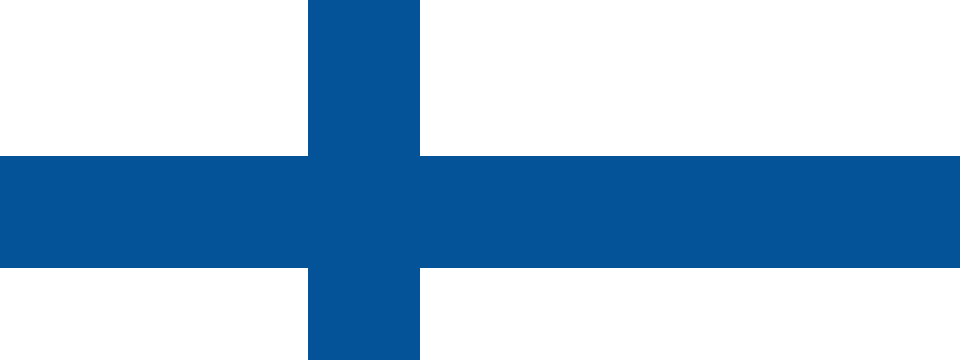Member State Interview
The Once-Only view from Germany
In June 2023, we discussed the German implementation of the Once-Only Technical System (OOTS) with Christoph Harnoth and Sybille Behling. The European Commission and EU Member States are committed to simplifying cross-border online procedures by allowing citizens and businesses to supply the same data to public authorities ‘only once’. This is strongly in-line with the strategic vision of authorities in Germany on how to digitalise services and processes while respecting regional competences and data protection rules.
We asked Christoph and Sybille about the digital transformation of public services in Germany, the EU’s largest economy. “German public administration needs to become more digital” they both note in unison, almost pre-articulating the challenges of digitalisation in a large country with a de-centralised structure. “The Online Access Act” (Onlinezugangsgesetz, (OZG) (2017) will help Germany catch-up. It will provide all German citizens and businesses with access to government documents at all government levels” notes Christoph.
German public administration needs to become more digitalSybille Behling, Christoph Harnoth
The Online Access Act legally obliges German public administrations to provide most of their services online.
With initiatives like this driving digitalisation, we asked what the main challenges are. Christoph and Sybille are quick to respond: ensuring the protection of personal data is a core commitment of the German government and German public administrations. “Almost all public administrations processing personal data must secure the data exchange and ensure compliance with the General Data Protection Regulation […] The heterogeneous landscape makes it hard”, noted Sybille. Authentication solutions must serve both citizens and businesses and respect security and privacy requirements. Some regions in Germany develop especially good solutions in specific contexts. Christoph and Sybille are always open to support good technical solutions and making them available throughout Germany.
Once-Only Technical System
The Once-Only Technical System connects EU public authorities, so they can exchange official documents and data at the citizen’s request. It puts into practice the Once-Only Principle, which states that citizens should not be forced to provide information to authorities if another authority already holds that information (certificates, credentials, or licenses, for example, known as ‘evidence’) in electronic format. The legal deadline for the implementation of the Once-Only Technical System is 12 December 2023.
The European perspective
Christoph and Sybille also point to the “Dashboard Digitale Verwaltung”, or the Dashboard of the Digital administration. This Dashboard helps give an overview of the status of important projects for the digitization of public administration in Germany, helping to drive the public sector digitalisation in Germany.
Reflecting on the requirements of the Online Access Act, Christoph and Sybille observe the centrality of ‘process’ when discussing how to digitalise so many services at different levels in different areas. “We found that by looking at services we had to put online, we were often talking about process”, noting that having a uniform process on how to digitalise services as procedures makes the task more manageable.
Looking at Once-Only more specifically, Christoph and Sybille note that they are working on a national Once-Only Technical infrastructure (NOOTS), which in turn links to the wider pan-EU Once-Only Technical System. This national Once-Only Infrastructure will be built in-part on an Access Point and intermediary platform (a minimum viable product is currently in development by the German state of North Rhine Westphalia) to solve connectivity problems across borders. He notes several pilot projects are in place at the moment.
Christoph notes that Germany strongly supports a national German Once-Only Technical System with the same technical underpinning as the pan-EU system to help build one single ecosystem. This is at the core of how the Once-Only Technical System will operate and contribute to a Digital Single Market in Europe. Implementers from Austria, the Netherlands and Germany are currently working on a company registration use case. “Progress is good, but very challenging to publish all the requirements”, he concludes.
Articles 6 (Procedures to be offered fully online) and 13 (Cross-border access to online procedures) in the SDG Regulation lay out the requirements concerning what a digital service is and the extent to which it must be available across-borders within the EU in clear terms. Sybille notes that this helps to make such a large-scale project more manageable.
Single Digital Gateway Regulation
The Single Digital Gateway Regulation (EU) 2018/1724) (SDGR) is a multifaceted EU-wide initiative that strives to create the digital infrastructure required to help people and businesses easy access to the information, the procedures, and the assistance and problem-solving services that they need in order to exercise their rights in the Single Market. Article 14 of the Single Digital Gateway Regulation (EU)2018/1724 mandates the creation of the Once-Only Technical System.
Implementation in Germany
The digitalisation of public services its at the heart of how citizens and businesses interact with their administrations. It also means making life easier, allowing users of public services to save time and resources where possible. Christoph and Sybille are certainly committed to this, driving positive societal and economic change.
“If we build this right, if we build the preview and [active] consent elements of the data exchange right, we can build-up trust between the state and citizens and businesses”. “If we can get the “ahh effect”, that will be very promising” he concludes, noting that users will need to feel it is a system that is indeed saving them time and energy.
[Once-Only] is a step towards building a proactive administrationChristoph Harnoth
“I lived in Ireland and Finland before returning to Germany” reflects Sybille “I am really happy to see this. It can be hard to live in other countries”. Sybille reflects the realities of millions of Europeans who either live in another Member State, or live and work across national borders within the EU. But it goes beyond even this. “We also need an international workforce, to attract companies to Europe. This is part of the value of the Single Market”.
Both Christoph and Sybille feel they often hear how digitalisation in Germany isn’t progressing as swiftly as it should. “We have the issue of online access, authentication. [Solving] that is a great first step. But we also need to look at infrastructure and the wider ecosystem”, notes Christoph. “These elements are nicely connecting” confirms Sybille.
I would like to see as many Once-Only use-cases as possible. People really using the Once-Only Technical System. The procedures listed in the SDG Regulation are good for this. The use-cases we have identified will stand the test of time. Eager to see Germany and Europe benefit from the value of Once-Only. Online services should promote this [Once-Only] as a technical solutionChristoph Harnoth
Sybille agrees and, with an eye on the future, considers Once-Only as part of Europe’s wider digital ecosystem: “it will be good in the long-term to synergies between [the European Digital Identity] Wallet and Once-Only Technical System”.
We thanked Christoph and Sybille for their time and the conversation.
Interviews with national implementers are a unique chance to look beyond the technical cross-border interconnection of digital services in Europe and get to know the architects of our digital Europe and what motivates them.
Thomas Fillis & Michael Ulrich, Once-Only Technical System Team (DIGIT-EXT)





